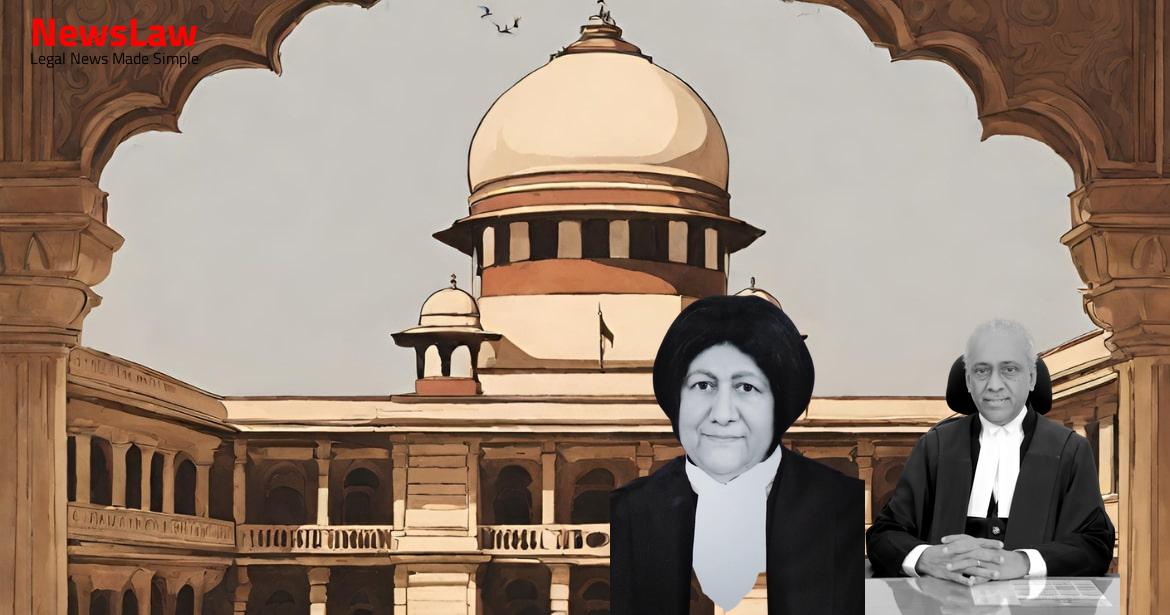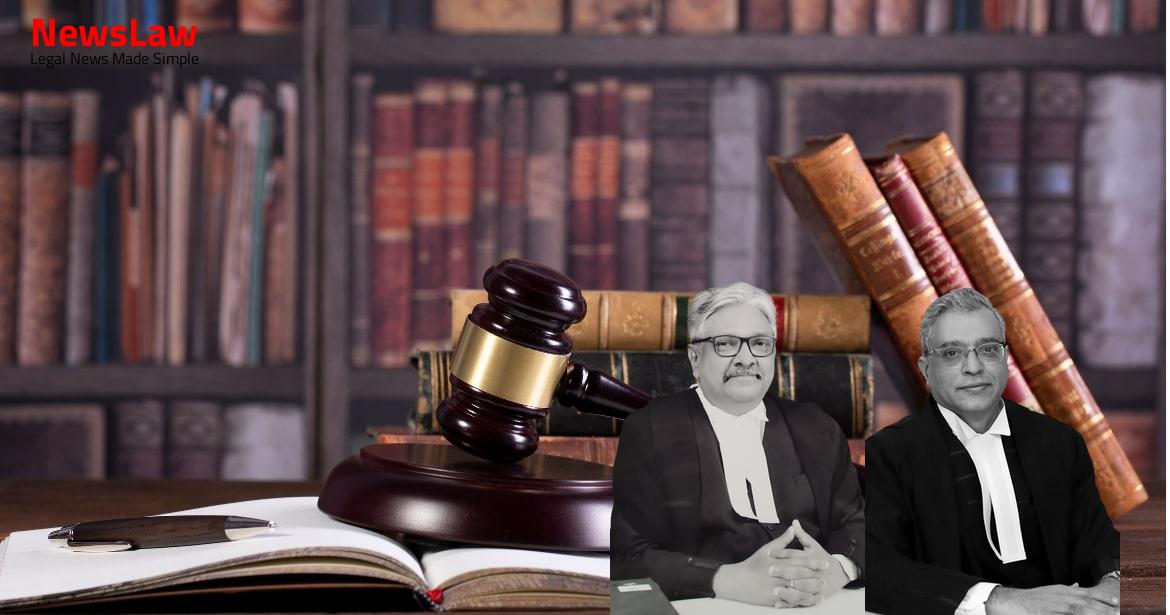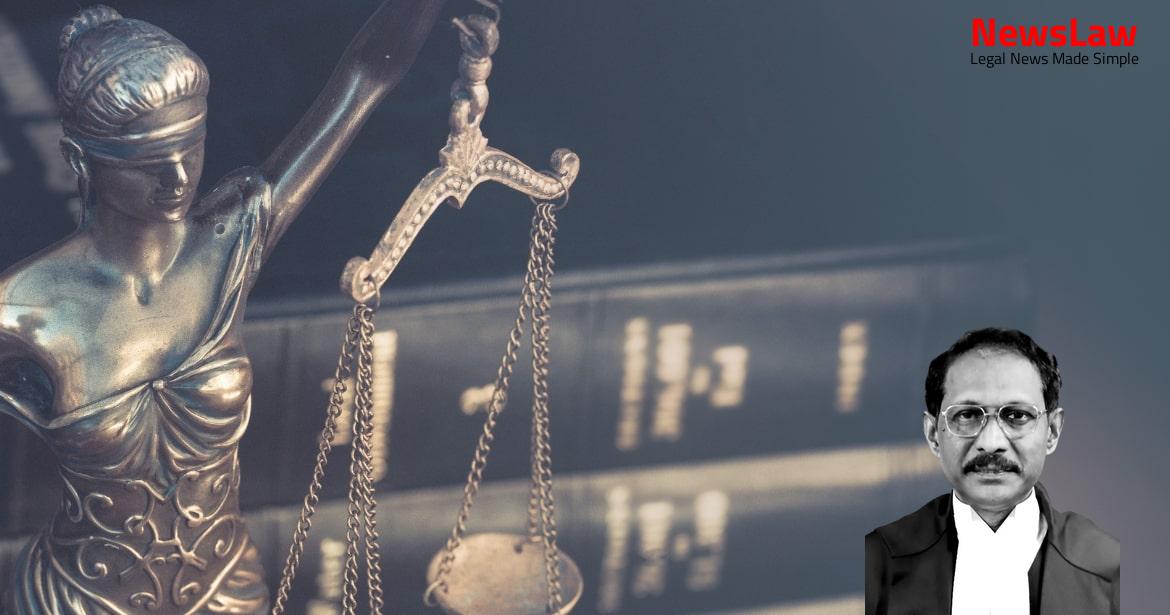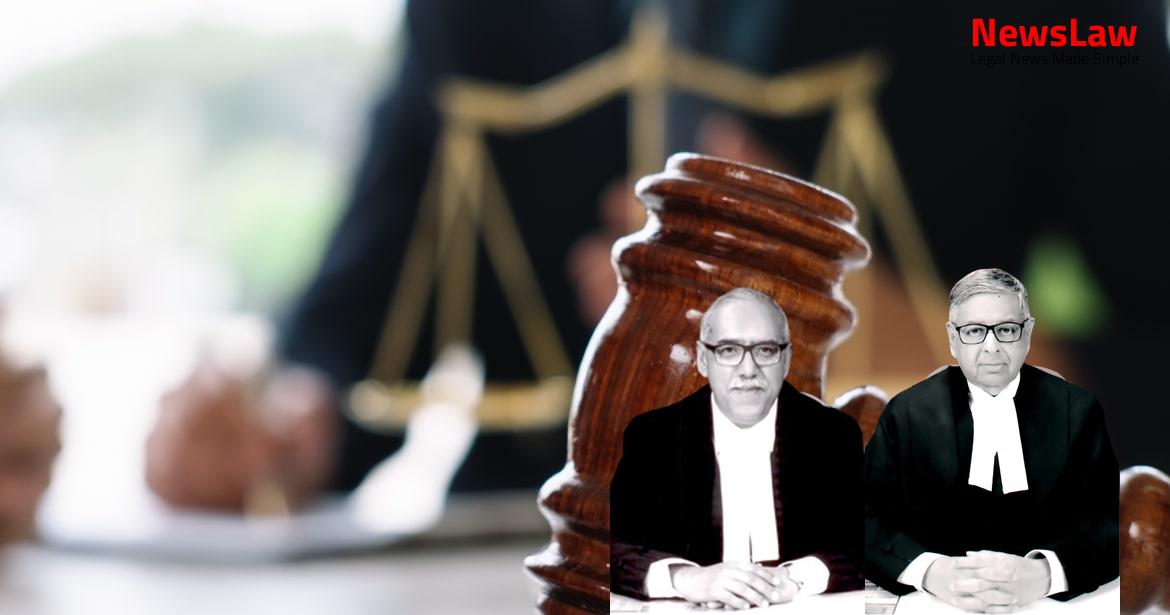Explore the intricate legal analysis provided by the court in the recent case regarding the interpretation of limitation in insolvency proceedings. Delve into the nuances of acknowledgments of debt and their significance in determining the time-barred nature of petitions under the Insolvency and Bankruptcy Code. Keep up with the evolving legal landscape in insolvency law and limitation provisions.
Facts
- The Corporate Debtor requested for restructuring the Term Loan in a letter dated 24 March 2014, which was not accepted by the Appellant Bank.
- A Recovery Certificate was issued in favor of the Appellant Bank on 25 May 2017 for recovery of dues from the Corporate Debtor.
- The objection of limitation raised by the Corporate Debtor was rejected by the Adjudicating Authority.
- The Respondent No.1 filed an appeal under Section 61 of the IBC in April 2019 acknowledging the liability to the Appellant Bank.
- A Demand Notice was issued to the Corporate Debtor on 1 October 2018, followed by a Petition under Section 7 of the IBC on 12 October 2018.
- The Appellant Bank was allowed to file additional documents on 6 March 2019.
- The NCLAT held the Petition by the Appellant Bank under Section 7 of the IBC as barred by limitation.
- The Corporate Debtor had earlier defaulted on repayment on 20 September 2013.
- Legal notice was issued to the Corporate Debtor on 22 December 2014 for repayment.
- Various proposals for One Time Settlement were made by the Corporate Debtor, but not accepted by the Appellant Bank.
- The Adjudicating Authority admitted the Petition under Section 7 of the IBC on 21 March 2019.
- The Petition was filed within three years of acknowledgement of liability by the Corporate Debtor.
- Financial Statements and Balance Sheets of the Corporate Debtor for the years 2016-2017 and 2017-2018 were provided.
- An offer was made by the Corporate Debtor on 03.03.2017 to settle its dues to the Appellant Bank on a one-time payment of Rs.5.5 crores.
- Final judgment and decree/order dated 27 March, 2017 passed by the DRT, Bengaluru, in favor of the Appellant Bank for an amount of Rs.52,12,49,438.60 in O.A. No.16/2015.
- Recovery certificate No.2060/2017 was issued by the DRT on 25 May 2017.
- Mr. Mehta argued that the Corporate Debtor had admitted having paid Rs.111 lakhs towards interest on 28 March, 2014.
Also Read: Challenging Conviction: Legal Analysis Spotlight
Issue
- The NCLAT dismissed the Petition filed by the Appellant Bank under Section 7 of the IBC, citing it as barred by limitation.
- The main question in this appeal is whether a Petition under Section 7 of the IBC can be barred by limitation solely based on the filing period exceeding 3 years from the declaration of the loan account as NPA.
- The Appellant Bank’s position is that even if the filing happened after 3 years, if the Corporate Debtor acknowledged its liability within the three years before the filing through actions like proposing One Time Settlement or acknowledging the debt in financial records, the Petition should not be considered time-barred.
Also Read: Analysis of Contempt Charges for Breach of Undertaking
Arguments
- Mr. Mehta argued that the Petition under Section 7 of the IBC was not barred by limitation as the Corporate Debtor admitted to the jural relationship of debtor and creditor
- Documents such as payments made by the Corporate Debtor to the Appellant Bank and correspondence acknowledging liability were cited as evidence
- The NCLAT’s finding that the Petition was barred by limitation was challenged, pointing out the relevant materials on record
- Arguments were made regarding the introduction of documents at a belated stage and the objections raised by the Respondents
- The foundation for extension of limitation under Section 18 of the Limitation Act was discussed, emphasizing the need for it to be in the pleadings
- Communications from Respondents were only to buy peace and end the litigation, not an acknowledgment of debts for Section 18 of Limitation Act.
- Cited Jignesh Shah where it was held that a suit for recovery within limitation does not impact the remedy of winding-up proceeding.
- Referring to Gaurav Hargovindbhai Dave, argued that One-Time Settlement proposal is not an acknowledgment of debt under Section 18 of the Limitation Act.
- A suit for recovery is independent of winding-up proceeding and doesn’t impact the limitation period for winding-up.
- Noted a pending review petition against Gaurav Hargovindbhai Dave but its effect has not been stayed.
- Concluded that until the review application is allowed and the judgment is reversed, it operates as a precedent.
Also Read: Land Dispute: Court’s Analysis on Condonation of Delay
Analysis
- The NCLAT overlooked the Certificate of Recovery issued in favor of Appellant Bank on 25 May 2017, establishing a fresh cause of action.
- Shri Rewant Ruia, being the son of Shri Ravi Ruia, would be deemed to be acting in concert with the corporate debtor.
- Delay in filing a Petition in the NCLT can be condonable under Section 5 of the Limitation Act.
- Acknowledgement of debt by the Corporate Debtor can extend the period of limitation by a further three years.
- Resolution applicant who can run the corporate debtor as a going concern should be facilitated under the IBC.
- Statutory Forms and Rules of the IBC provide guidelines for filing applications under Sections 7 to 10.
- The Adjudicating Authority’s discretion in filing additional documents and pleadings under the IBC is upheld.
- The objective of the IBC is to revive insolvent companies and provide a balanced legal framework for resolution.
- The time limit in IBC provisions, such as Section 12, is seen as directory rather than mandatory.
- Acknowledgment in writing can commence a fresh period of limitation under Section 18 of the Limitation Act.
- Proceedings under the IBC should not be excluded from the effect of Section 18 of the Limitation Act.
- Coercive proceedings against a Corporate Debtor in different forums can hinder its business activities and affect creditors.
- The IBC and its regulations should be interpreted liberally to serve the purpose of the statute.
- Each provision in a statute must be understood in the context of the Act itself.
- Judgments should be considered as precedents for the legal issues decided, not for the factual observations.
- Section 238 of the IBC gives it overriding effect over other laws.
- Entries in the Corporate Debtor’s books can amount to an acknowledgment of debt under Section 18 of the Limitation Act.
- Section 238A of the IBC states the applicability of the Limitation Act to proceedings before relevant authorities.
- Corporate Insolvency Resolution Process under IBC is distinct from coercive recovery litigation.
- Judicial pronouncements should be understood in the context of the specific case.
- Certain circumstances can give rise to a fresh period of limitation for initiating corporate insolvency resolution process.
- The principles regarding inability to pay debts can be applied to applications under Section 7 of the IBC when default occurs.
- Final judgments or decrees not satisfied may fall under financial debt, enabling creditors to initiate proceedings under Section 7 of the IBC.
- The period of limitation for applications under Section 7 or 9 of the IBC is three years from the date of default.
- The objectives of the Bankruptcy Law Reforms Committee in recommending the IBC were noted in the judgment.
- The impugned judgment and order is unsustainable in law and facts.
- The reasons provided in the discussion above support this assertion.
- The legal and factual basis for the judgment and order is flawed.
- The decision does not align with the established legal principles.
- Further analysis is needed to rectify the errors in the judgment.
Decision
- Appeal allowed
- Impugned judgment and order of the NCLAT set aside
Case Title: DENA BANK (NOW BANK OF BARODA) Vs. C. SHIVAKUMAR REDDY (2021 INSC 380)
Case Number: C.A. No.-001650 / 2020



